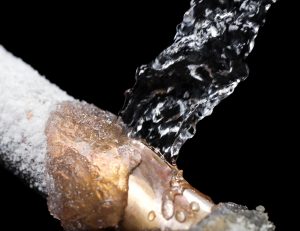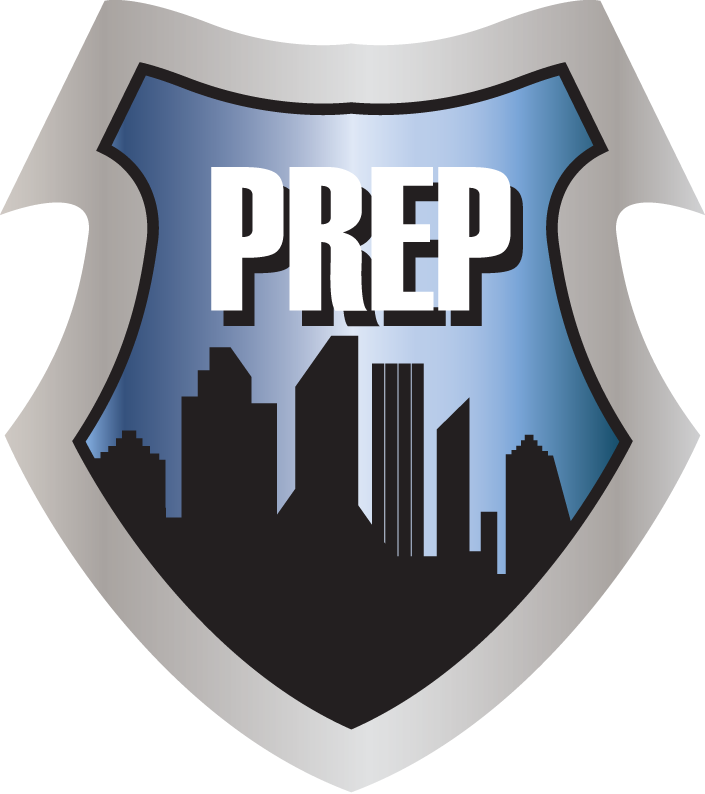Winter Water Damage: Frozen Pipes
Unlike most materials that contract with extreme drops in temperatures, water is unique in that it expands when it freezes. If water in your pipes freeze, it will expand, apply pressure to your pipes, and can lead to serious problems. The consequences of a frozen pipe include (but not limited to) ruptured pipes, major leaking, and serious water damage in your Cleveland OH property. However, frozen pipes are not completely inevitable. With a little know-how, property owners can play a key role in preventing frozen pipes and avoiding costly water damage. As we be begin to leave autumn behind and transition into winter, it is important for Cleveland Ohio home and business owners to properly prepare for the cold to come.

Preventing Frozen Pipes During Ohio Winters
Midwest winters are notoriously brutal and especially cold. It is important for Cleveland Ohio property owners to take the necessary precautions to prevent winter water damage caused by frozen pipes. Frozen pipes can cause a great deal of property damage and leave you with an expensive repair bill. Preventive measures are often quick and inexpensive, and the right preventive measures can go a long way in preventing serious water damage.
- Allow your faucets to drip— Let cold water drip from your faucets. This will keep the water moving and reduce the pressure buildup in your pipes. Even a slight trickle will help to keep your pipes from freezing.
- Set your thermostat— Set the same temperature for day and night to help maintain consistent warmth for your plumbing and reduce the likelihood of frozen pipes. Often times, homeowners will turn down the thermostat at night or while they are out of town in an attempt to reduce energy spending. The possible consequences are not worth the few dollars saved.
- Open kitchen and bathroom cabinet doors— This will increase circulation of warmer air to the plumbing behind the cabinets. If you store cleaners and chemicals in your cabinets, be sure to move them to a safe location and away from children and pets.
- Keep garage doors closes— Especially if your water heater or any water supply lines are in your garage, you need to keep the cold air out and maintain the warmer air.
- Prepare your home for your absence— If you and your family plan on being away during the winter months, leave the heat running at a minimum of 55 degrees fahrenheit. Before leaving your home for extended periods of time, you should set aside some time to properly prepare your Ohio home for your absence and prevent home water damage during your winter vacation.
You do not have to wait for winter to prepare your home. There are a great deal of long term maintenance that can be done to prevent frozen pipes during the cold months. You should consider adding insulation to attics, basements, and crawl spaces. Insulation will maintain warmer temperatures in these areas. You can also maintain indoor warmth by preventing drafts, sealing cracks and openings around windows, doors, and at sill plates.

Thawing Out Frozen Pipes in Cleveland OH Properties
Sometimes, despite all the prep and precautions, frozen pipes might be inevitable depending on the given weather conditions or underlying vulnerabilities. In the event you suspect a possible frozen pipe– perhaps water fails to come out of your faucet or it comes out at a trickle– you need to act fast. First, you should check to see that the water is still turned on and that you don’t have a leak. Once you’ve confirmed these two things, continue your inspection to make sure your pipes have not burst.
If your search reveals that your pipes are frozen but have not ruptured, you have two choices:
- Call a plumber to help thaw your frozen pipes— This is a good idea if you don’t think you can safely thaw the pipes yourself, you don’t know where the frozen pipes are, or you can’t access the frozen area.
- Attempt to thaw the frozen pipes yourself— Be aware this option can be dangerous if not done correctly. You should NOT attempt to thaw it out yourself if you are unable to locate the frozen area, if the frozen area is not accessible, or if you can not safely thaw the pipe.
If you decide to proceed and thaw the pipes out yourself, be sure that you are able to determine the location of the frozen pipe. Only proceed if you have full access to the pipe to safely thaw it.
Tips & Safety Precautions For Thawing Frozen Pipes
 Keep your faucets open— This will help to relieve pressure on the pipes as the ice melts. The water and steam from the melting ice will have somewhere to go. Running cold water through the pipes will help the ice melt in the pipe.
Keep your faucets open— This will help to relieve pressure on the pipes as the ice melts. The water and steam from the melting ice will have somewhere to go. Running cold water through the pipes will help the ice melt in the pipe.- Apply heat to the frozen area of the pipe— Isolate the frozen section of your pipes and apply steady heat. The safest methods include: directing a hair dryer, heat lamp, or portable space heater towards the frozen area. Leave the faucet open for water and steam to escape.
- DO NOT leave running heating equipment unattended at any time
- You can also wrap an electric heating pad around the pipe. You can use a rag soaked in warm hot water and wrap that around the pipe; however, this can get rather messy. (DO NOT pour boiling water directly into your pipes)
- NEVER use a heat source with an open flame– i.e: blowtorch, kerosene or propane heater, charcoal stove or other open flame.
- Apply heat until the full water pressure is restored.
- If you are unable to isolate the frozen area, if the frozen area is not accessible, or if you can not thaw the pipe safely by yourself, call a licensed plumber.
- Check all pipes— Turn on other faucets throughout your home to check for any more frozen pipes.
In the event that a frozen pipe ruptures and leads to major water intrusion in your Ohio home or business, WET’s Emergency Water Damage Restoration Team in Ohio is available 24/7 to come to your rescue.

 Keep your faucets open— This will help to relieve pressure on the pipes as the ice melts. The water and steam from the melting ice will have somewhere to go. Running cold water through the pipes will help the ice melt in the pipe.
Keep your faucets open— This will help to relieve pressure on the pipes as the ice melts. The water and steam from the melting ice will have somewhere to go. Running cold water through the pipes will help the ice melt in the pipe.



